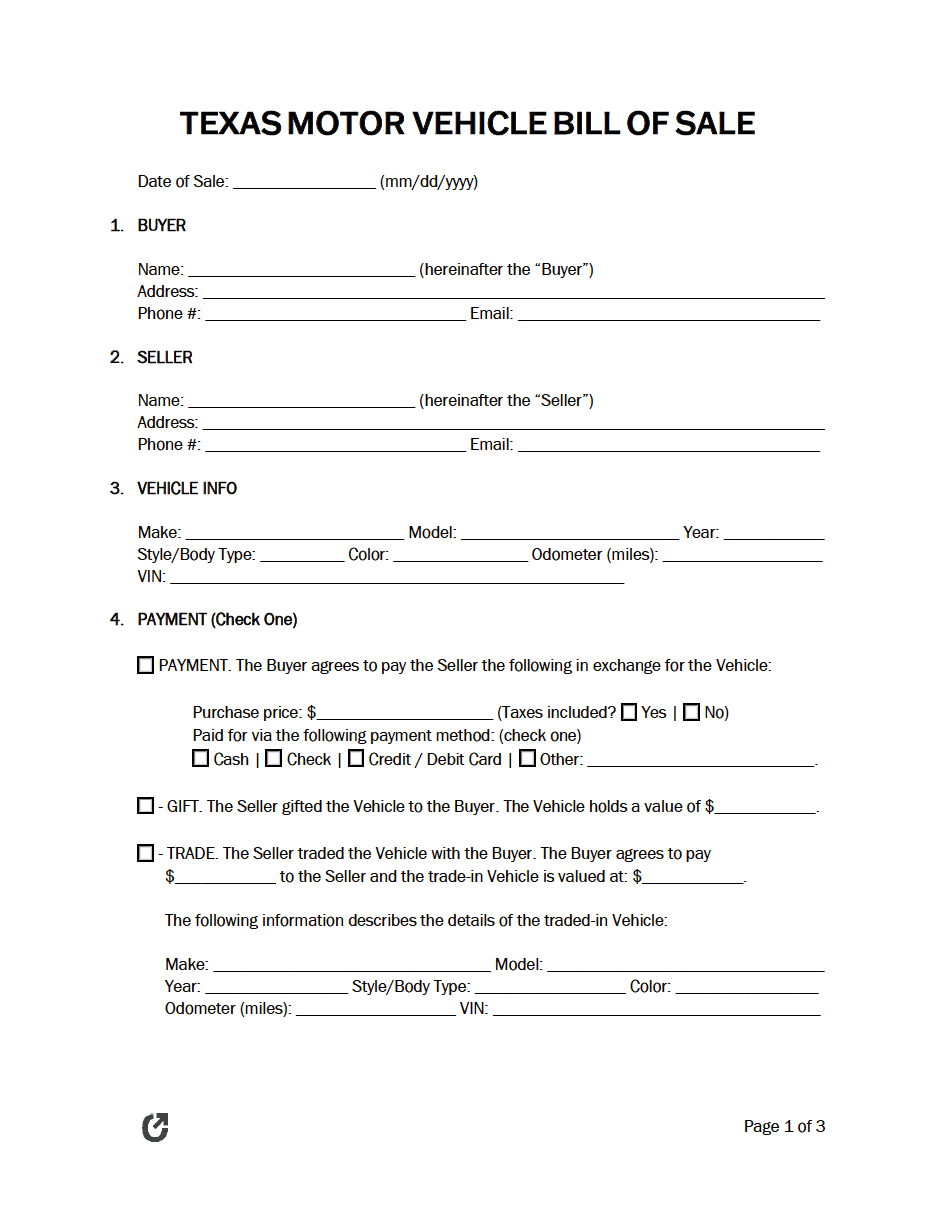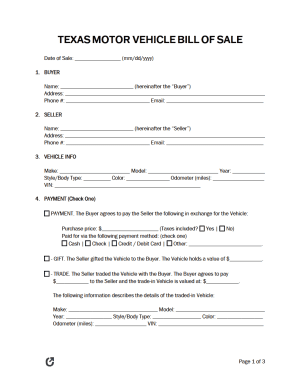Texas Bill of Sale Forms (5)
A Texas bill of sale form involves the interchange of personal property from a private seller or dealer to a customer or individual. The form does not restrict the items a person can or cannot sell. In other words, both parties can use it for any object as long as it is legal in Texas. Most often, buyers and sellers often use the form for guns, boats, cars, or other general items that do not fit under another category.
Summary
|
By Type (5)
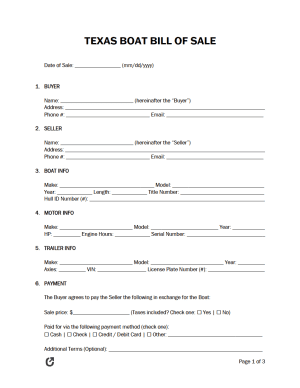 Boat Bill of Sale – Testimony of a vessel purchase between a buyer and seller.
Boat Bill of Sale – Testimony of a vessel purchase between a buyer and seller.
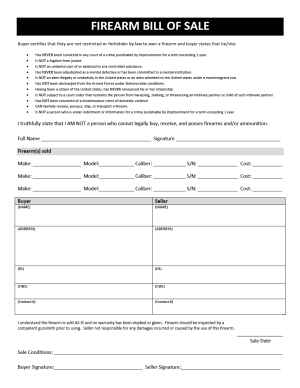 Firearm Bill of Sale – Reports the procurement of one or more guns from a private merchant or dealer.
Firearm Bill of Sale – Reports the procurement of one or more guns from a private merchant or dealer.
Download: PDF
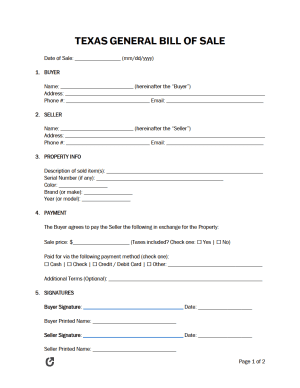 General Bill of Sale – Provides a chronological timeline of when and how a person acquired an item of value from another person.
General Bill of Sale – Provides a chronological timeline of when and how a person acquired an item of value from another person.
|
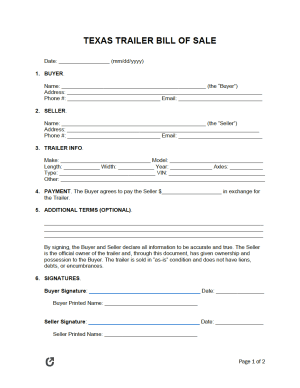 Trailer Bill of Sale – Serves as a testament of the arrangement created by a buyer and seller to exchange a service trailer.
Trailer Bill of Sale – Serves as a testament of the arrangement created by a buyer and seller to exchange a service trailer.
Signing Requirements
| Bill of Sale Type | Buyer Signature | Seller Signature | Notarization |
| Boat | Required | Required | Not required |
| Firearm | Required | Required | Not required |
| General (others) | Required | Required | Not required |
| Motor Vehicle | Required | Required | Not required |
| Trailer | Required | Required | Not required |
What is a Texas Bill of Sale?
A Texas bill of sale serves as a first-hand account of an event involving the transfer of an item from one person to another. After determining the deal’s specifics, the buyer and seller come together to fill out the document. Once signed, the buyer pays the seller, and the seller gives the buyer the property.
In some cases, the merchant must inform the state that they no longer have ownership of the item. For instance, when selling a car, the previous owner should notify the Department of Motor Vehicles (DMV) about the transaction. This step protects them if the new owner gets in an accident, causes damage, accumulates parking tickets, or is involved in other liability situations.
Registration Forms: Boats
Residents can complete their vessel registration by visiting a county tax office.
|
Additional (Optional) Documents
- Affidavit of Fact (Form PWD 314) – For first-time boat registration only.
- Outboard Motor Application (Form PWD 144) – To acquire a title for an outboard motor or pay taxes on it.
- Release of Lien (Form PWD 231) – The owner must complete this form with the lienholder after paying off the vessel’s loan.
- Verification of Vessel or Outboard Motor Serial Number (PWD 504) – Needed for vessels without or with an out-of-state title and registration.
Registration Forms: Firearms
Texas does not require gun registration or a permit to purchase and carry. However, residents can still obtain a license if they wish to do so. The application is available online via the Department of Public Safety (DPS) website. The applicant must submit the requested documents and fees within this portal.
|
Registration Forms: Vehicles
Make an appointment with a county tax office to register a vehicle in Texas.
|
Additional (Optional) Documents
- Additional Liens Statement (Form VTR-267) – If two (2) or more liens exist for the vehicle.
- Affidavit of Motor Vehicle Gift Transfer (Form 14-317) – For cars acquired by gift (i.e., not cash or trade).
- Texas Motor Vehicle Power of Attorney (Form VTR-271) – To allow a person to act in the car owner’s place.
- Texas Motor Vehicle Transfer Notification (Form VTR-346) – Completed by the seller to inform the state of their release of ownership for a car.
Registration Forms: Trailers
All trailers in Texas must have a registration. Tow behinds that weigh 4,000 pounds (or under) gross weight only need a registration. If it weighs over 4,000 pounds, the owner also needs to obtain or possess a title. Owners must visit a county tax office to register and/or title the trailer.
|
Additional (Optional) Documents
- Manufacturer Certificate of Origin (MCO) – If the individual purchases the trailer new, they must have the MCO. This document describes the identifiers of the trailer and its shipping details.
- Inspection – The trailer needs to pass inspection if it weighs more than 7,500 pounds unless the owner uses it solely for farming purposes.
- Registration – Sellers of used trailers weighing 4,000 pounds or less must provide the buyer with the current registration and bill of sale.
- Title – Used trailer sales must involve the transfer of a title if it weighs over 4,000 pounds.
- Trailer Verification Statement of Fact (Form VTR-141) – The owner must fill out this document for homemade trailers that need a title.
- Weight Certificate – The county tax office requires this form to confirm the weight unless it is present on the title or MCO.
